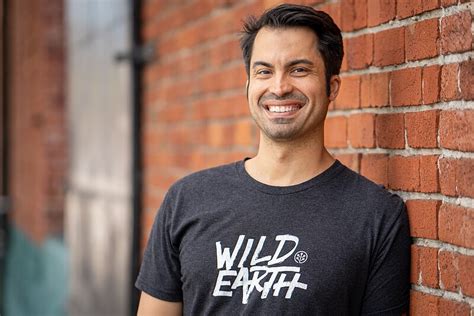A Quote by Wendell Berry
And having thoughtlessly polluted our streams and rivers, we have seen in recent years a rapidly growing market for bottled drinking water. I am sure that some will say that a rapidly growing market for water is "good for the economy," and most of us are still affluent enough to pay the cost. Nevertheless, it is a considerable cost that we are now paying for drinkable water, which we once had in plentiful supply at little cost or none at all. And the increasing of the cost suggests that the time may come when the cost will be unaffordable.
Related Quotes
More and more businesses are seeing the potential of a more sustainable business model, driven both by the firm belief that business can be a force for good and by the realization that the cost of inaction often exceeds the cost of action - notably when it comes to the growing threat of climate change and water scarcity.
If you can predict where the market's going, just do what you can predict. If you can't, which is the presumption of dollar cost averaging or time cost averaging, either one, then you're trying to ease in. But if the market rises more than it falls most of the time, easing in is, by definition, a loser's game.
I know it's different today than when I was growing up, and that's fine. But I have never been somebody, even when I was earning $19,000 a year, I never ran around whining and moaning about what things cost. What they cost was what they cost. And if I couldn't afford it, then I had to find a way to afford it or forget about it for now. It's just the way it was.
On the Internet, there are an unlimited number of competitors. Anybody with a Flip camera is your competition. What makes it even worse is that YouTube is willing to subsidize the cost of your bandwidth. So anybody can create and distribute for free basically, but the real cost is marketing. And that's always the big cost - how do you stand out and what's the cost of standing out? And there's no limit to that cost.
We need an honest bottom line. Today that bottom line is vastly subsidized. If anyone of us were paying the full cost of oil our bottom lines would be very different. If you internalize the cost of oil, look at the cost of the war in the Middle East or the cost of global warming for future generations, if you internalize those external costs and what you pay, that bottom line would look very different, what ever business you are in.
Civilization comes at a cost of manliness. It comes at a cost of wildness, of risk, of strife. It comes at a cost of strength, of courage, of mastery. It comes at a cost of honor. Increased civilization exacts a toll of virility, forcing manliness into further redoubts of vicariousness and abstraction.
Since your time is your main involvement here - I mean, the clay doesn't cost very much. Even the glaze and the firing doesn't cost a great deal. But your time is the cost, and if you can keep your time to a minimum and still come out with the results you want, that means the pots can be sold for an economic price.







































